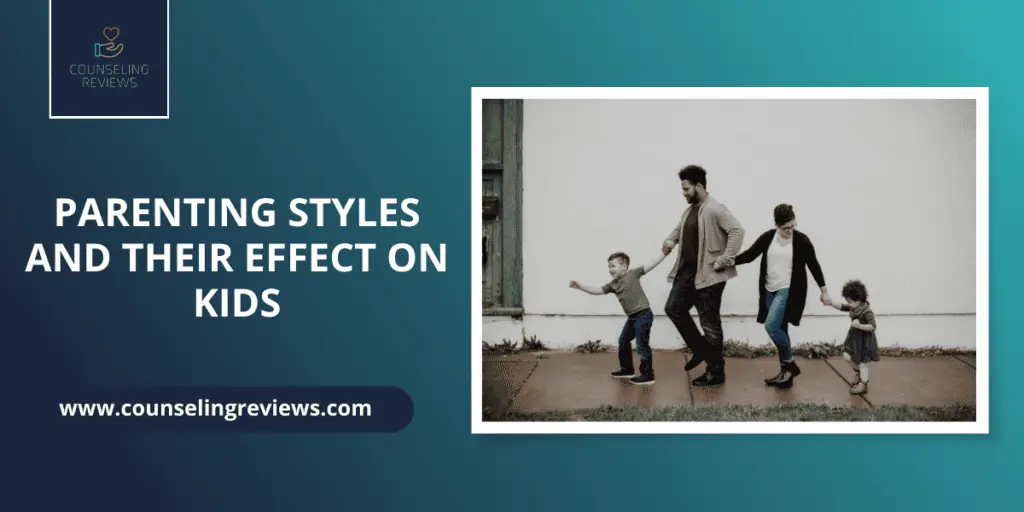Most of us enter parenthood with the best of intentions. We all want healthy, kind, social, academically independent, and well-adjusted children. Some of us may have a defined and consistent parenting style, while others operate with more spontaneity.
In this article, we interviewed doctors, psychologists, and therapists, to ask them what are the biggest challenges of raising children today and what effect certain parenting styles have on children. Though some experts might recommend one parenting style over another, many experts believe having a supportive environment, where open communication and listening are valued, offers the best chance for kids to thrive – regardless of the parenting method.
What are the various parenting styles?
Parenting styles can be divided into four primary categories.
- Authoritarian: Rules tend to be strictly enforced with consequences issued if rules are broken. Parents utilizing this parenting style often place high expectations on their children in terms of academics, social behavior, and more. There aren’t many opportunities to negotiate rules or be granted explanations of rules. Therefore, dialogue between children and parents is often limited.
- Authoritative: This parenting style is considered the most balanced parenting style of the four. Expectations and rules are clearly defined and children understand what is expected of them. While there may be consequences if rules are broken, there is room for an explanation of consequences and possible negotiation. Autonomy and independence are highly encouraged, though guidance is still provided.
- Permissive: There are few rules and expectations. Parents who are permissive believe children learn best from natural consequences rather than imposing them on their children. There may be a lot of dialogue between children and parents but little action. Children may not understand what is expected of them.
- Uninvolved (or Neglectful): Basic survival such as food, clothes, shelter, and oversight are provided, but not much else. Social interaction with children is limited and children may be viewed as burdensome.
What are the consequences of these parenting styles?
Authoritarian
While some of the experts interviewed would agree the authoritative parenting style offers the most balanced perspective, each style has its own challenges.

A child raised in an authoritarian household will most likely struggle with independence. They may be so highly regulated at home, they don’t know how to operate confidently in the world without boundaries and regulations. Children raised in strict households, where they aren’t encouraged to question authority, might experience anxiety, depression, low self-esteem, and struggle socially.
Parents who prefer to operate from an authoritarian style will benefit from opening up communication with their children. Children and parents can discuss why certain rules exist and the appropriate consequences for not following such rules. Listening to their children’s feelings and input about such rules demonstrates their opinions are considered, whether or not rules are adjusted. Showing empathy to children after rules are broken is helpful for children to view their behavior as needing adjustment, not their personality.
Authoritative
While considered one of the most balanced parenting styles, children raised with the authoritative perspective might experience difficulty with decision-making. Since expectations are clearly set and explained, children may not know how to proceed confidently in the real world when expectations are not as clearly defined.

Guidance remains imperative but so does instilling the confidence to be independent. These families can help their children take small steps towards independence, utilizing situations where children are safe to make mistakes. In this way, children can learn that life isn’t perfect and can begin to flex their “recovery” muscles when mistakes happen.
What parents often forget is, it’s much better to have your children make mistakes when living at home, prior to college, when they can still benefit from parental guidance.
Permissive
These parents often have the best of intentions but operate from a child-centered belief. Unfortunately, many children from these families do not experience discipline or consequences and experience a rude awakening in the world outside of their home. I often remind parents, if you don’t discipline your children, other people will, and they will do so with a lot less love and forgiveness than you are able to provide.

Boundaries and rules are important and extend well beyond childhood and our nuclear family. There are rules in school, at work, socially, and beyond. It’s important for parents to allow their kids to practice rules and boundaries at home so they can be functional and socially effective in the outside world.
Uninvolved (neglectful)
Some might perceive the baby boomer generation as the parents who didn’t parent, the “80’s mom” as the term has been coined. While there is a spectrum of uninvolved parenting styles, we will address the most uninvolved.

Kids raised in this type of household, where only basic needs are met and social interaction is limited, tend to develop unhealthy attachment patterns. Often these children feel too independent and sometimes, unloved. They may struggle with low self-esteem, poor academic performance, and potentially have a higher risk of abusing substances.
Parents who are uninvolved simply need to become more involved. If this isn’t possible, due to work constraints or other issues, parents can elicit help and support from their community. Perhaps having their kids join the Boys and Girls Club of America may provide the mentorship, social interaction, and oversight a child requires. Church, temple, or other community support may also be helpful for those parents whose time is restricted.
What are some of the biggest challenges for families today?
Digital Influence
Almost every expert we interviewed agrees, navigating the digital age is a challenge for every family. As a parent and as a therapist, I can attest setting boundaries around digital use is very challenging. The Gen-Z generation is the first set of parents to have to navigate the vast landscape of the digital age and with limited research, there will be mistakes.
It’s a struggle for adults to regulate their own use of electronics and it becomes even more challenging attempting to regulate their children and teens’ use. My son is almost 16, and while we didn’t give him an iPhone until High School, we are constantly having to negotiate his use. Where phone use and texting might be perceived as healthy and social, unlimited access to the internet and games is not.
Therapists, psychologists, and doctors agree, digital access needs to be regulated. Boundaries and clear expectations need to be expressed. While it may be difficult to implement control over iPhones, there are many apps available that are intended to do just that. Fighting fire with fire, these apps limit time on social media or the internet itself and act as digital padlocks for those who need them.
The Z generation and many Millenials, are seeking “dumb” phones, utilized for GPS, texting, and calling only. They too are tired of the time “suck” that exists with smartphones and are taking measures to ensure their time is better managed.
Work and life balance
Experts also agree it has become more difficult to spend quality time with family as many households require two working parents. Aside from busy parents, kids too are overscheduled with extracurricular activities. Overall, our modern culture places a high value on being busy, at a cost we have yet to determine.
Experts agree it is important to make quality time with the family for everyone’s benefit. While you may not be able to spend every weekend together or share nightly dinners, the time you are able to carve out is important. Quality over quantity is key.
The best therapy for kids
Experts were somewhat split on the type of therapy they believe is best for kids as there are so many different modalities to choose from. However, one expert stated the importance of therapy centers on the relationship between the child and therapist. In other words, if the child has a trusting and open relationship with their therapist, this relationship itself provides the most support and effective outcomes regardless of the type of therapy utilized. Here are the best online therapy platforms for kids. You can also try therapy games for kids.
Many of the experts also agree parents can benefit from family therapy and parenting education. When therapy is viewed from a holistic viewpoint, where all members of the family benefit from support, the outcome is much more positive for the “identified patient.”
Conclusion
No matter the parenting style you use with your children there are pros and cons to each. Experts agree, regardless of your parenting method, all children and families benefit from a supportive environment that values open communication and a balance of independence and guidance.
Though we may be at the “freshman” level for navigating the digital age and our busy culture, there is enough basic research to indicate we need to uphold boundaries around digital use as well as create opportunities for quality time with our families.
Overall, parenting is challenging no matter the circumstances, but if you are able to create a balance of oversight and independence, digital use and outside time, and quality connections, your family will reap the benefits.





